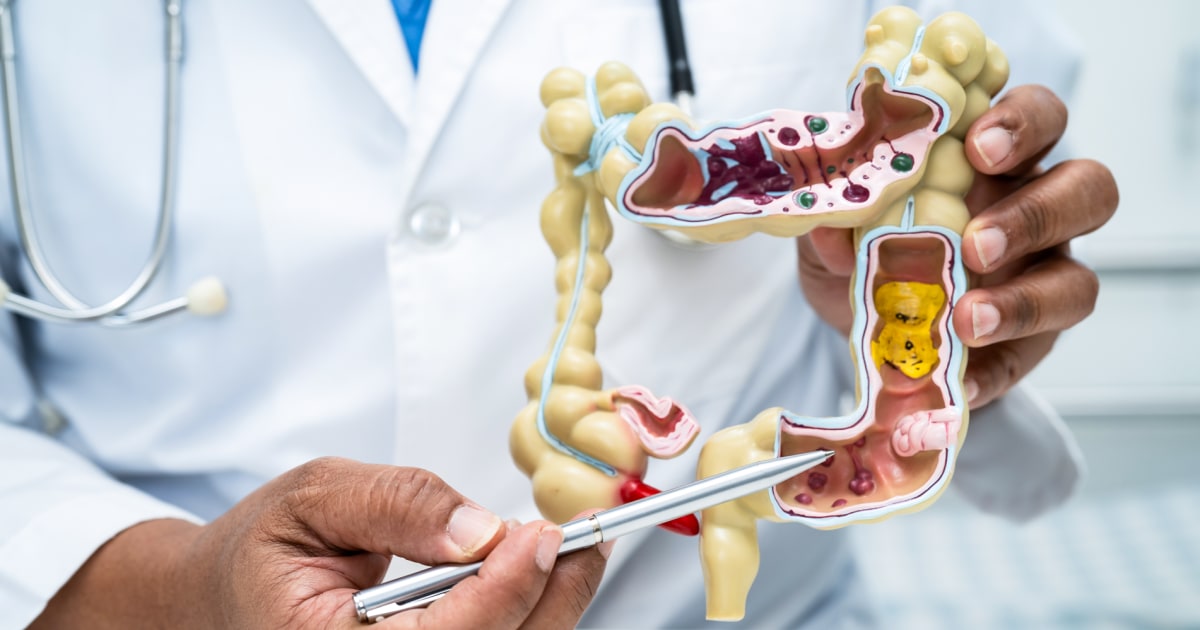
After the recommended age to start screening for colorectal cancer was lowered to 45, there was a small but significant increase in screenings among younger people, according to a study published in the journal JAMA Network Open.
The lower screening age was put into place in 2021 by the U.S. Preventive Services Task Force, which previously recommended starting screenings at age 50.
Colorectal cancer cases have been rising in people younger than 50 over the last two decades. The U.S. Preventive Services Task Force isn’t the first group to suggest lowering the screening age. In 2018, the American Cancer Society also recommended to start getting checked at 45.
The U.S. Preventive Service’s Task Force’s recommendation carries weight, however, because if the group endorses a screening for a particular group, insurance will cover it.
The new study found that colorectal cancer screening among 45- to 49-year-olds remains low overall but increased threefold following the 2021 guideline change.
“It’s interesting to see how rapidly we have seen this uptake take place after the guidelines were released, especially in light of the pandemic creating roadblocks for screening,” said lead study author Sunny Siddique, a cancer researcher at the Yale School of Public Health.
Siddique and his team looked at patient data from more than 10 million people with Blue Cross Blue Shield insurance. On average, the researchers found, colorectal screening rates among people ages 45 to 49 increased from around 0.5% before the 2021 guidelines to 1.5% a year and a half after the change.
“An increase of 1% seems small, but this is hundreds of thousands of people,” Siddique said.
Although all of the people in the study were insured, the researchers still saw disparities in screening uptake. People who lived in the richest areas, they found, experienced the greatest increase in screening rates.
“Even if you take out the factor of insurance, we are still seeing differences,” Siddique said. “If you live in an area that is in the low socioeconomic range, your likelihood of having access to these services is lower.”
About 11% of colorectal cancer cases are diagnosed in people younger than age 50 — about 20,000 people, according to the American Cancer Society.
“Early-onset colorectal cancer is a big deal. If you’re not screening early, you’re going to find those cancers at a later stage,” said Dr. Christopher Lieu, co-director of gastrointestinal medical oncology at the University of Colorado School of Medicine.
Lieu said the results of the study are promising, suggesting awareness around the new recommended screening age is increasing, but he noted that screening among those who don’t have insurance, who weren’t included in the study, is likely lower.
“One of the biggest predictors of whether you get age-appropriate cancer screening is whether or not you have insurance,” Lieu said.
The uptick in screening among the insured, Lieu said, could also partly be due to more widespread use of noninvasive colorectal cancer screening methods, such as Cologuard, a stool test that has a 92% accuracy rate, and Shield, a blood test that detects colorectal cancer in 83% of people who have it. If these tests show a positive result, a doctor will perform a follow-up colonoscopy.
“We’re taught since medical school that the best screening test is the test that gets done,” said Dr. Marwan Fakih, co-director of the gastrointestinal program at City of Hope, a cancer research and treatment organization in Los Angeles.
Colonoscopy is the gold standard for colorectal cancer screening, since it can detect not only cancerous tumors, but precancerous polyps that can be removed before they can turn into cancer. But cheaper, less invasive methods, such as stool and blood tests, are important ways of getting more people screened. Still, the tests aren’t for everyone.
“For people who have had colon cancer, or people with very strong family history, there is no alternative colonoscopy for screening,” Fakih said.






